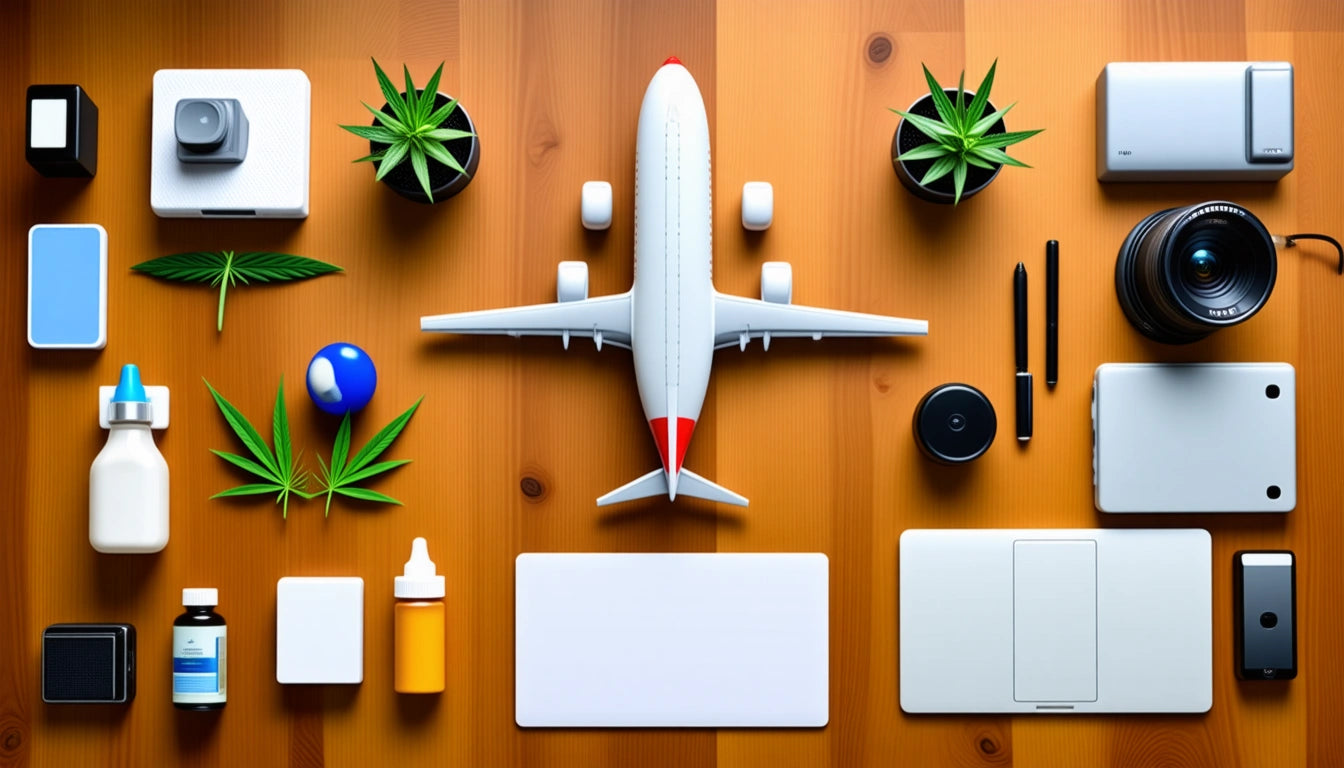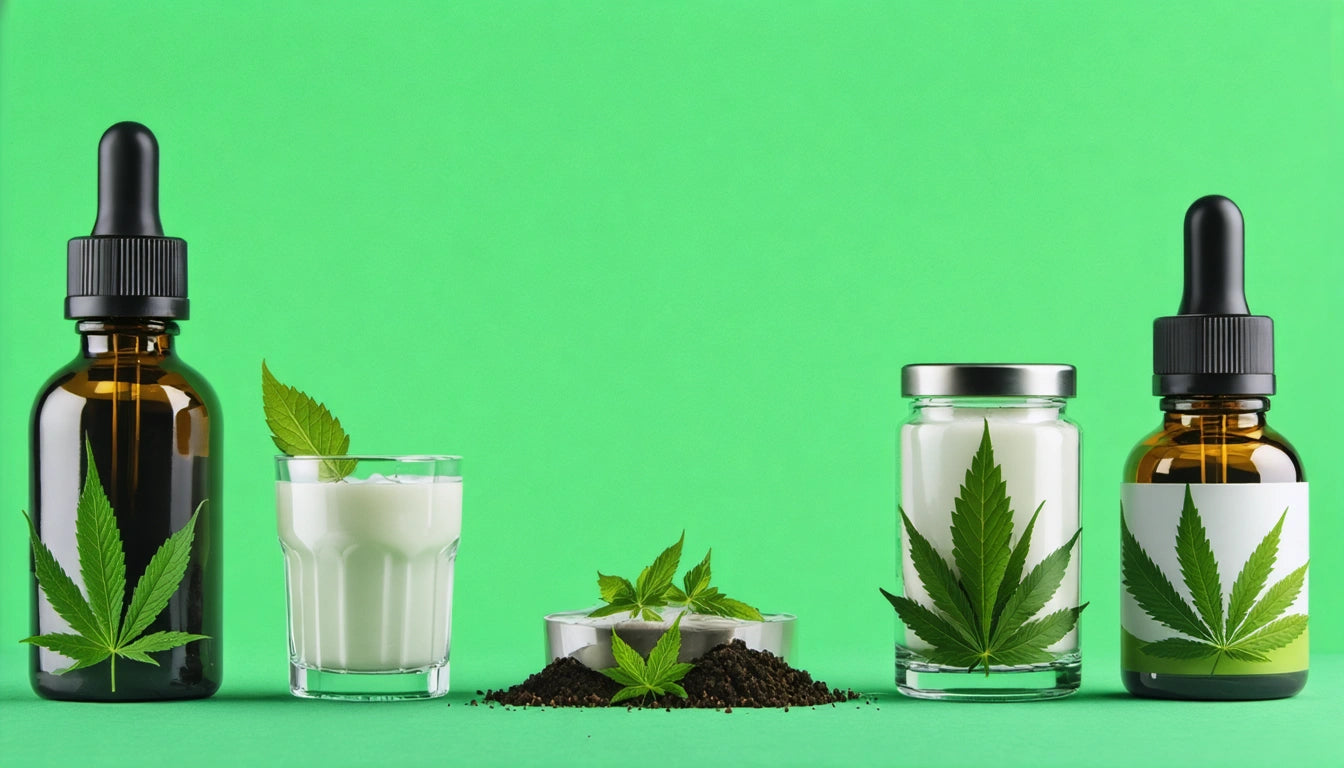Table of Contents
- The Legal Landscape: Federal vs. State Cannabis Laws
- TSA Policies on Cannabis and Related Products
- Medical Marijuana: Special Considerations
- CBD and Hemp Products: Different Rules
- International Travel and Cannabis: Serious Risks
- Storage and Freshness Considerations
- Cannabis Travel Alternatives: Safer Options
Flying with Pot: What You Need to Know About Traveling with Cannabis
As cannabis legalization expands across states, travelers increasingly wonder about the rules for flying with pot. Whether you're a medical patient or recreational user, understanding the regulations about bringing cannabis on a plane is essential to avoid serious legal consequences. This guide covers what you need to know about air travel and marijuana, including TSA policies, legal considerations, and practical alternatives.
The Legal Landscape: Federal vs. State Cannabis Laws
The fundamental challenge when considering how to fly with pot stems from the conflict between federal and state laws. Despite legalization in many states, cannabis remains a Schedule I controlled substance under federal law. This creates a significant legal contradiction for air travelers.
Federal Jurisdiction in Airports
All commercial airports in the United States operate under federal jurisdiction. This means that federal law, not state law, applies once you enter airport property. Even if you're in a state where recreational cannabis is legal, federal law prohibits possession once you enter the security checkpoint.
Many travelers ask, "can you bring pot on a plane legally?" The straightforward answer is no. Under federal law, transporting cannabis across state lines constitutes drug trafficking, which carries severe penalties including potential prison time.
TSA Policies on Cannabis and Related Products
The Transportation Security Administration (TSA) is primarily focused on security threats, not searching for drugs. However, their official policy on cannabis is clear: if they discover marijuana during routine screening, they are required to report it to law enforcement.
What Happens If TSA Finds Cannabis
If you're wondering what happens when TSA discovers cannabis, the outcome depends largely on:
- The quantity found
- Local laws at your departure location
- The discretion of individual TSA agents and local police
In states with legal cannabis, some airports have implemented amnesty boxes where travelers can dispose of cannabis products before security without legal consequences. This indicates the practical reality: TSA and local police in legal states often take a lenient approach to small amounts of cannabis, but this discretion is not guaranteed.
Medical Marijuana: Special Considerations
Medical marijuana patients often ask, "can you take pot on a plane if you have a prescription?" Unfortunately, having a medical marijuana card does not exempt you from federal law. The federal government does not recognize state medical marijuana programs.
As detailed in this guide on flying with medical marijuana, patients should:
- Carry their medical documentation
- Understand that it provides no legal protection under federal law
- Research medical marijuana reciprocity in their destination state
- Consider legal alternatives for their destination
CBD and Hemp Products: Different Rules
The 2018 Farm Bill legalized hemp-derived CBD products containing less than 0.3% THC. This creates a different legal situation for these products. According to TSA guidelines, FDA-approved hemp products are permitted in both carry-on and checked baggage.
However, as this resource on traveling with vape pens explains, the rules for vape devices add another layer of complexity. While the device itself must be in carry-on luggage due to battery safety regulations, any cannabis-derived liquids remain federally illegal.
International Travel and Cannabis: Serious Risks
The risks escalate dramatically when considering international travel. Many countries impose severe penalties for cannabis possession, including lengthy prison sentences. Some travelers mistakenly believe that flying from one legal region to another (such as California to Canada) is safe, but crossing any international border with cannabis remains illegal.
For those wondering how to smuggle pot on a plane for international travel, the advice is unequivocal: don't. The potential consequences far outweigh any benefit, with some countries imposing decades-long sentences or even death penalties for drug trafficking.
Storage and Freshness Considerations
Beyond legal concerns, cannabis quality deteriorates during travel due to pressure changes, temperature fluctuations, and time. For those in legal states who purchase cannabis at their destination, proper storage becomes important. Using humidity control packs designed for cannabis preservation can maintain freshness and prevent your flower from becoming too dry or developing mold during your stay.
These specialized humidity packs maintain optimal moisture levels, preserving terpenes and cannabinoids whether you're storing your legal purchase in a hotel room or vacation rental. They're particularly useful for longer trips where cannabis might otherwise degrade significantly.
Cannabis Travel Alternatives: Safer Options
Rather than risking legal consequences by attempting to bring pot on a plane, consider these safer alternatives:
- Research dispensaries at your destination in legal states
- Look into temporary medical cards if your destination offers reciprocity
- Consider legal hemp-derived CBD products as an alternative
- Take a tolerance break during your travels
As this comprehensive guide on traveling with cannabis suggests, planning ahead for legal access at your destination is always safer than attempting to transport cannabis through federally regulated airports.
For those who rely on cannabis medically, consult with your healthcare provider about legal alternatives or temporary medication adjustments for travel. Many medical patients successfully navigate travel periods with physician-approved strategies that don't involve transporting federally illegal substances.
The Evolving Legal Landscape and Future Travel Considerations
As cannabis laws continue to evolve, travel policies may eventually change. However, until federal legalization occurs, the fundamental conflict between state and federal law will persist for air travelers. Staying informed about current regulations is essential for anyone considering cannabis and travel.
Remember that the safest approach is always to comply with federal law when flying. The temporary inconvenience of sourcing cannabis at your destination or abstaining during travel is minimal compared to the potential legal consequences of transporting a federally controlled substance across state or international borders.











Leave a comment
All comments are moderated before being published.
This site is protected by hCaptcha and the hCaptcha Privacy Policy and Terms of Service apply.